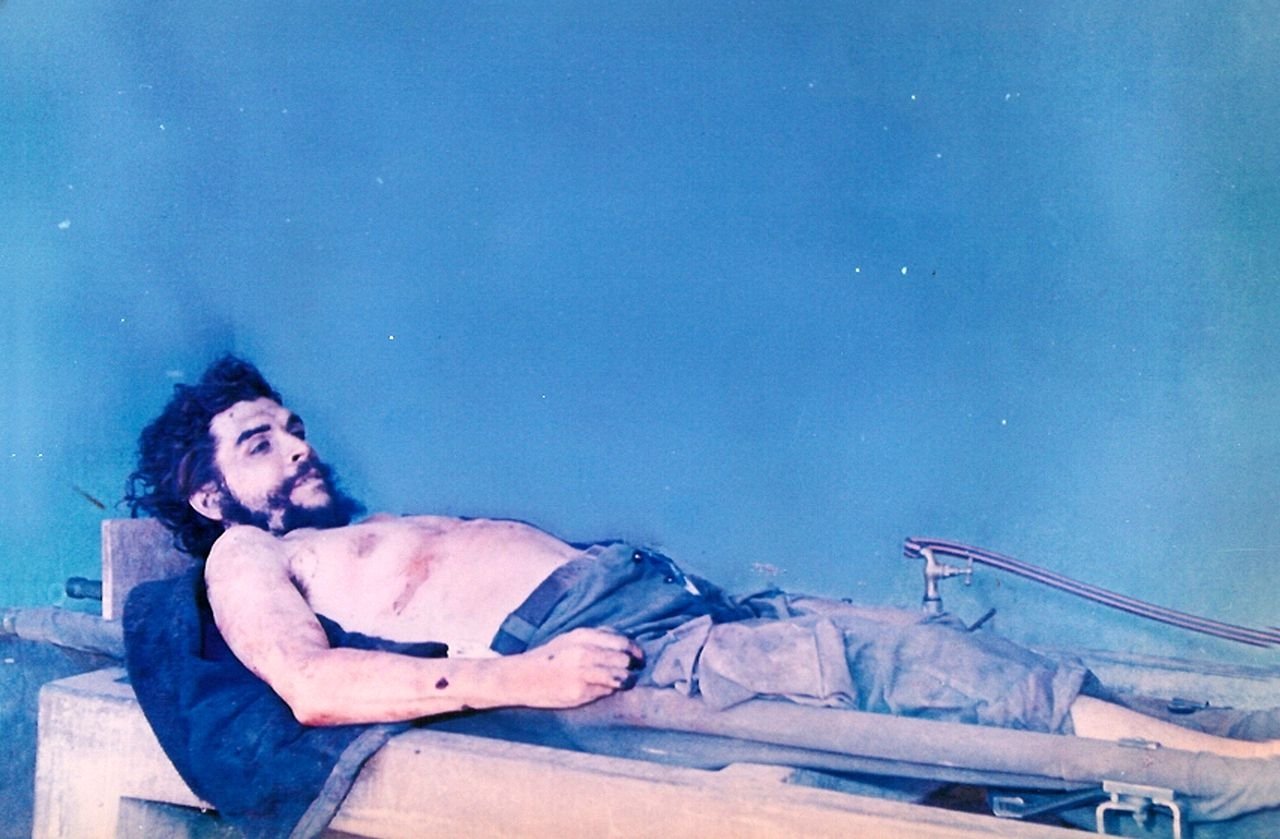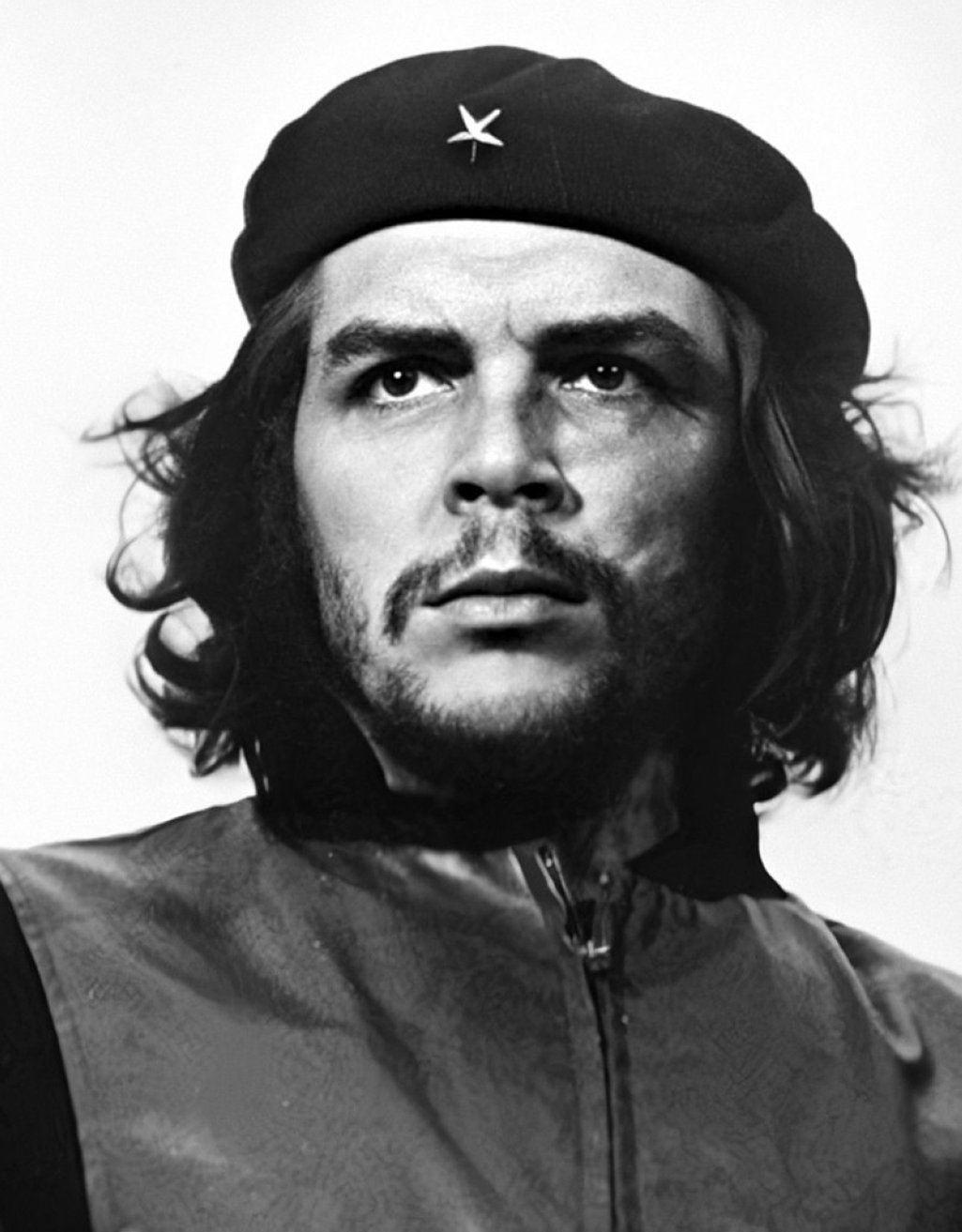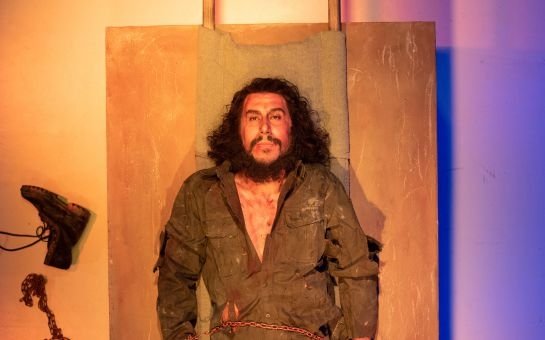© Turkuvaz Haberleşme ve Yayıncılık 2026
There is a myth that in the moment of death your whole life flashes before your eyes. Personally, I am yet to discover the answer. Still, there is one thing to be sure of: "Che's Farewell," the play by Kumbara Visual Arts Theater, reveals one of the leaders and symbols of the Cuban Revolution, Ernesto Guevara de la Serna’s, life during his half-awake last moments before his death.
"Che’s Farewell" is the first play in the world that unrolls Ernesto Guevara’s story in the last 24-hours before he dies through a one-man performance. Vural Bingöl, the Turkish director and performer, led the production, who presents a deeply felt lively show.
The play takes on Che’s total journey, from his childhood to the Cuban Revolution, from Fidel Castro’s administration to his assassination in the Bolivian jungle. By referring to the audience as "comrades," the play sets off the journey along with spectators.
When you enter the auditorium in Kadıköy Public Education Center to watch to play, the songs such as "Bella ciao," "Hasta Siempre, Comandante," that recount the resistance and revolution are playing. These songs contribute to boosting the atmosphere. Before you, you see commander Che, lying on a stage, bloody, gyved and almost dead.
The play opens on an end, the death of Che, evoking the photo of him taken Oct. 9, 1967, lying on the laundry room sink of the Vallegrande hospital where he was placed for the public to see after his capture and execution by Bolivian Special Forces, supported by the CIA, in the South Bolivian Mountains.

There is only one column on the stage on which Che lies, chains attached to his feet and wrists. The minimal usage of props is intended to convey symbolism for the rest of the play, no description needed. Juxtaposed images channel his spirit tactfully; the hot-blooded revolutionary leader crying for freedom is chained, we see him shackled to the floor, drenched in blood yet "My head is bloody but unbowed."
The production benefits from fog to reflect the suddenness of memory while flashing red light in Che’s passionate and angry moments. The script on the other hand intrigues the audience in a Baudelairian manner – hypocrite reader, my fellow, my brother – on the character portrayal of Che as the decades after his death, his image as a leader has been polarized. I would like to leave the answer to the spectator’s discretion upon seeing the play.

Che was born in Rosario, Argentina in 1928. Due to his premature birth, he got severe asthma. Waking up, the actor takes a deep breath at the beginning of the story. Throughout the play, Che reveals his memoirs by persistently coughing and taking really deep breaths. I must be expressing that sometimes my lungs too felt like they had ceased functioning. The committed physical performance of the actor during the two-hourlong show is praiseworthy.
The Latin America trip, which was a turning point in Che's life and strengthened his view on the revolutionist ideology, pick out the play’s deepest feeling moments. Contrary to the picaresque journey of Don Quixote on the back of his clumsy horse (Rocinante), we take a closer look at the search of reality in 23-year-old Ernesto Guevara and his friend Alberto Granada on their "powerful" motorbike (La Poderosa) throughout the trip. They witness poverty, inequality and disease over the course of the journey.
At the end of the play, we witness the assassination of Che by Mario Terán Salazar, a young Bolivian army sergeant who was chosen to execute the captured guerrilla, "Shoot, you are only going to kill a man," he says as his last words. The curtain closes and the actor gets a standing ovation.

The play, which features a biography blended with historical reality, creates a good opportunity to take a closer look at Che’s life even for those who do not know him. Having been associated with the Cuban revolution, most people even are not aware that Che is an Argentinian-born leader. These days, he has been reduced to a kitschy icon for selling products which totally contradicts his ideology. I strongly recommend you to watch the play, as Che’s cultural legacy deserves more than that.
